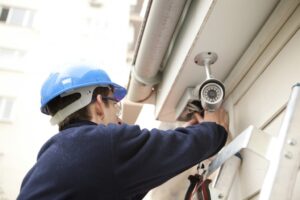Co-parenting after separation often requires parents to manage intense emotions while still prioritizing their child’s well-being. In a diverse and fast-paced city like Los Angeles, emotional resilience becomes a crucial skill for maintaining healthy communication and reducing conflict. Co-parenting coaching programs, such as resources found at aurishasmolarski.com/los-angeles/co-parenting-coaching/, often emphasize the development of emotional stability so parents can navigate challenging transitions more effectively.
Understanding Emotional Resilience In Co-Parenting
Emotional resilience refers to the ability to adapt to stress, recover from setbacks, and regulate intense emotions. For co-parents, this resilience becomes the foundation for making decisions that focus on the child rather than the conflict. Parents in Los Angeles may experience additional pressures—career demands, long commutes, cultural diversity, and financial strains—which can heighten emotional reactivity. Coaching often helps individuals recognize these triggers and develop healthier responses.
Developing Self-Awareness And Emotional Regulation
One of the essential tools in co-parenting coaching is developing self-awareness. Parents are provided with guidance to recognize their emotional patterns, communication habits, and identify the situations that make the atmosphere more tense. Understanding these patterns enables them to stop for a moment before they react, hence conflicts are less likely to occur. Often, coaches bring in grounding exercises, reframing techniques, and reflective practices, which give parents the opportunity to change their reactive behavior and conscious intentional communication.
In a number of situations, this awareness also entails delving into the emotions that are driving the reactions, for example, fear, frustration, or even grief that has not been resolved and is related to the separation. Once parents understand the roots of these emotional triggers, they will be able to face difficult talks with more clarity and emotional steadiness. The coach may suggest that the parents keep a journal or engage in structured self-reflection so that they can see their emotional development over a period of time. This profound insight not only changes the way co-parents interact but also sets the emotional stage for children who get to observe and assimilate the healthy ways of expressing and managing emotions.

Improving Communication Skills
Effective communication is a cornerstone of resilient co-parenting. Coaching sessions frequently involve learning neutral language, clarity in messaging, and the ability to separate personal emotions from co-parenting decisions. Many Los Angeles parents live busy lives, relying on digital platforms to coordinate schedules. Coaching teaches them how to communicate respectfully and efficiently—even through text or email—while minimizing misunderstandings.
Managing Stress In A High-Pressure Environment
Los Angeles presents a unique set of stressors, from high living costs to demanding work schedules. These factors can indirectly influence co-parenting dynamics. Coaches often help parents build stress-management routines, which may include mindfulness, structured routines, and healthy boundaries. By managing external pressures, parents are better equipped to maintain consistency and emotional stability for their children.
Supporting Children Through Parental Resilience
Children are very dependent on the emotional vibe that their parents share with each other. When parents become resilient- show composure, respect each other’s views, and deal with the challenges accordingly- kids feel more safe and secure. Coaching points to the necessity of exhibiting this conduct as the primary method whereby kids get support, security, and become less affected by the changes in the family unit. Through experiencing emotionally stable parenting, children enhance their coping skills, relieve anxiety, and get a firmer feeling of security in the middle of the changes. This positive emotional modeling sets up the basis of healthier long-term growth.
Building Cooperative Mindsets
Another frequently used strategy in Los Angeles coaching sessions is the idea of shifting from personal to cooperative problem-solving. Parents get the insight to consider each other as co-parents and not rivals. Such an attitude lessens the tendency to become defensive and thus makes compromising more attainable. Coaches help parents direct their attention to the goals they have in common, e.g., the child’s emotional welfare, which brings about the reduction of disagreements. The collaborative style, thus, becomes instrumental in generating respect of each other and giving the child a more stable and secure environment, which, in turn, is predictable and supportive.
Conclusion
Strengthening emotional resilience is an essential component of successful co-parenting, especially in a complex urban environment like Los Angeles. Coaching provides parents with structured tools to regulate emotions, communicate clearly, and create a healthier environment for their children.





More Stories
Understanding Whole Body MRI For Dallas Families With A History Of Cancer
A Comprehensive Look At Non-Surgical Medical Spa Treatments In Edison, NJ
Choosing The Right Therapy Services For Mental Well-Being